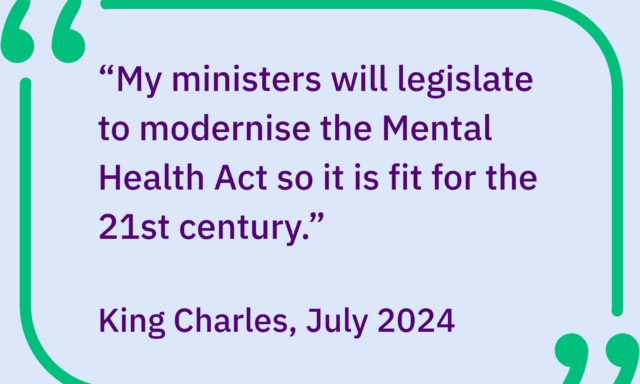
The Mental Health Bill 2025 is about to change how police forces operate during mental health crises. Even though the Bill is not aimed directly at policing, its ripple effects are impossible to ignore. From tighter detention thresholds to the formal removal of police custody as a place of safety, the responsibilities officers hold will be scrutinised more closely than ever.
This moment demands urgent attention from senior police leaders. The Bill will soon be enacted and, while the legislation may be largely finalised, the way it is implemented and police forces respond remains in play.
To support forces through this transition, Thalamos is hosting a digital webinar tailored specifically for police force senior decision makers. This session will be led by Alex Ruck Keene KC (Hon), former legal adviser to the Wessely review of the Mental Health Act 1983, and one of the UK’s foremost experts in mental health and mental capacity law.
Date: Wednesday 1 October
Time: 12:00pm – 1:00pm
Location: Online webinar — register here
This is not a generic policy briefing. It is a focused, high-quality session designed for operational decision-makers who need legal clarity and actionable insights. Attendees will gain a clear understanding of:
- The revised legal thresholds for detention under the Mental Health Act
- What the exclusion of police custody as a place of safety means in practice
- How forces can protect themselves and their officers through evidencing, escalation and improved interagency efficiency
- Where to focus influence as the Mental Health Act Code of Practice PACE Code C and are updated
Alex Ruck Keene will share his expert advice to help police leaders navigate this new environment and focus on:
- Education: Understanding what the law does and does not say. Dispelling common misconceptions around powers, responsibilities and options available during crisis situations.
- Evidencing: Recording real-time decisions to protect officers and forces from liability. Proper documentation could mean the difference between a defensible decision in complex circumstances and liability for substantial damages.
- Efficiency: Removing friction from handovers, processes and communication. The more efficient the interface with health services, the less likely officers are to be left holding unacceptable levels of risk.
- Escalation: Having clear routes when the system fails. Knowing how and when to escalate to partners or the courts when the person in front of you cannot safely be discharged from custody given the risks to themselves or others.
This is about preparing for what Ruck Keene has described as the “brace for impact” moment when the provisions of the Bill come into force. Forces will still be expected to carry out crisis response duties, but with fewer options, tighter rules, and greater scrutiny.
If your force is wrestling with Right Care, Right Person, long handovers, or ambiguity around legal thresholds, this is the time to get answers. The upcoming changes will affect custody decision-making, section 136 usage, and the exposure level for frontline officers. The goal of this webinar is to ensure your force is not caught off guard.
Join us to understand the risks, the responsibilities and the reforms that will shape your work going forward.
The law is changing. Now is the time to prepare.


